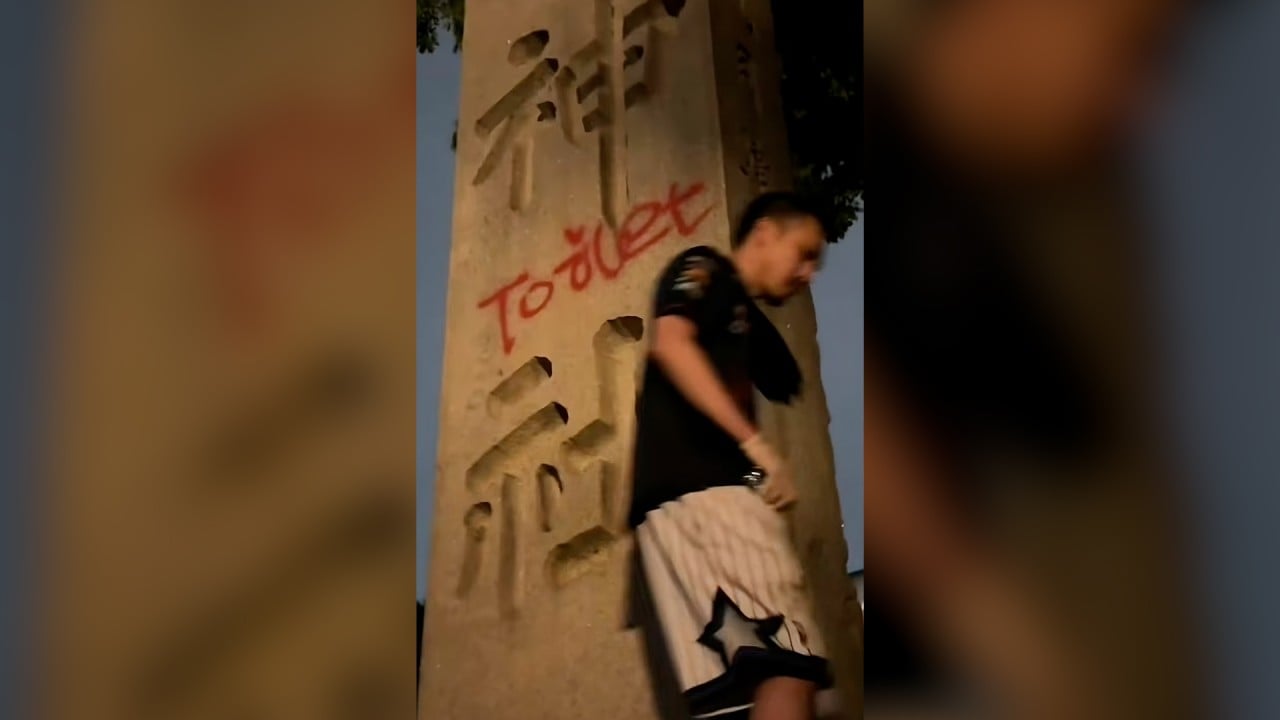Tokyo’s Yasukuni Shrine, which honours Japan’s war dead, including convicted World War II war criminals, was vandalised again overnight on Monday.
“It is deplorable that an act seeking to denigrate the shrine’s dignity has happened again,” the shrine said in a statement.
In May, a stone pillar at Yasukuni was spray-painted red.
Jiang Zhuojun, 29, who lived north of Tokyo, was later arrested “on suspicion of vandalism and disrespect for a place of worship”, Tokyo police said in July.
A Yasukuni shrine official confirmed the new case of graffiti, without elaborating further.
Footage from public broadcaster NHK showed a stone pillar defaced with Chinese words meaning: “Dog toilet sh**. Militarism, go to hell.”
Asian nations that suffered from Japanese aggression before and during World War II see Yasukuni as a symbol of militarism.
Convicted Class A war criminals, including Hideki Tojo, Japan’s wartime prime minister, are among the 2.5 million Japanese war dead enshrined at Yasukuni. The shrine itself, a dramatic-looking building with sweeping roofs, also includes in its grounds memorials and museums dedicated to kamikaze pilots.
It also includes a museum that portrays Japan largely as a victim of US aggression in WWII and makes scant reference to the extreme brutality of invading Imperial troops when they stormed through Asia.
Every year on August 15, the anniversary of Japan’s surrender in World War II, there is scrutiny of which Japanese politicians visit Yasukuni to pray for the war dead.
Such visits have angered some of Japan’s Asian neighbours and former victims of its imperialism, especially China and South Korea.
Many regular Japanese go there to pray for their family members and friends, regardless of their political views.
This year, some politicians, including Defence Minister Minoru Kihara, prayed at the shrine on August 15. Prime Minister Fumio Kishida, who has announced he will not seek reelection next month, did not go but sent an offering.
Emperor Naruhito and his late father Akihito have not visited Yasukuni.
The maximum penalty for property damage is three years in prison and a 300,000 yen (US$2,000) fine.


